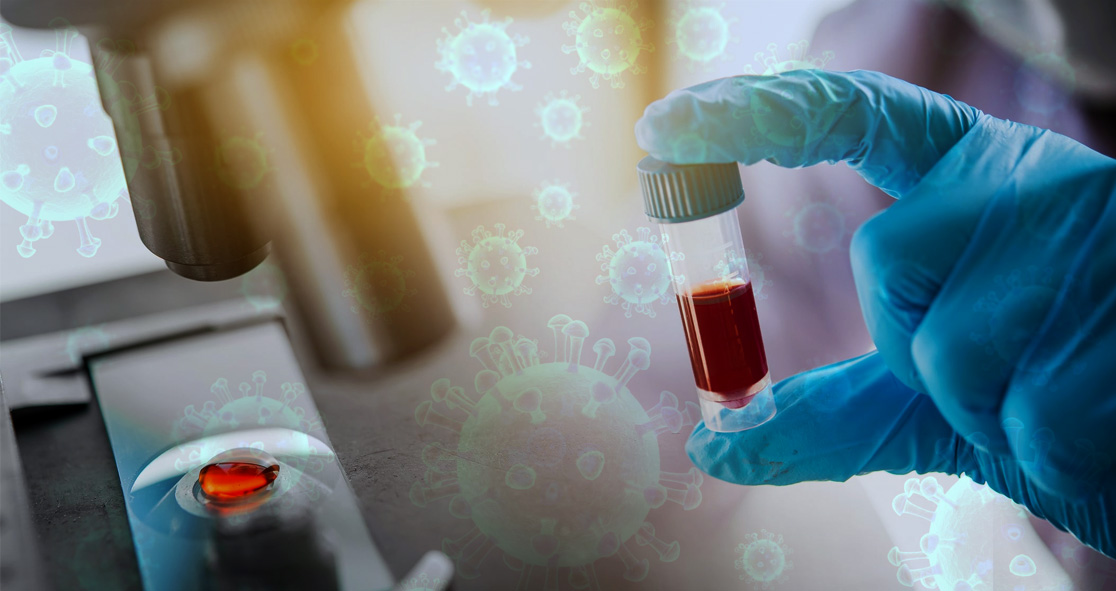Researchers at the Hull York Medical School and Department of Mathematics at the University of York, England, have identified unique factors in the blood of patients with severe and fatal COVID, according to Medical Xpress.
The researchers, who published their findings in the journal iScience, said their discovery could pave the way for simple diagnostic tests, helping doctors to identify patients who will develop severe illness.
The new findings could also lead to new ways for assessing the risk of COVID patients, relieving the pressure from hospitals during infection spikes.
The scientists analyzed blood samples from hospitalized COVID patients and detected “indicators” in the blood associated with patients becoming so ill they needed treatment in ICU.
Lead author Dr. Dimitris Lagos from Hull York Medical School at the University of York said, “Our study identified factors in the blood that are uniquely correlated with severe and fatal outcomes for hospitalized COVID patients.”
“These findings support the observation that COVID is a disease that develops in stages and have the potential to provide doctors with vital information,” he added, “allowing them to tailor treatments according to severity of disease and identify high-risk patients early.”
Dr. Lagos explained, “Importantly, our findings could provide the basis for new tests that are feasible in any hospital as samples we used were from routine blood tests already carried out as part of standard care for COVID patients.”
The researchers tested blood samples of over 160 hospitalized patients during the first and second wave of the pandemic. They measured levels of cytokines and chemokines – the proteins that drive the overwhelming immune response. The team also measured tiny RNAs, called microRNAs, which are known to be good markers of severity and stage in several other diseases.
Co-investigator Dr. Nathalie Signoret said, “Early in the pandemic, researchers observed high levels of inflammatory cytokines—molecules which adjust or alter the immune system response—in COVID patients with poor outcomes.”
“However, this so-called ‘cytokine storm’ was also present in hospitalized patients with a milder version of the disease,” she added. “We set out to fine tune our knowledge of which factors in the blood correlate with severe disease with more insight and accuracy.”
Dr. Signoret explained, “Our findings provide a scientific foundation for the development of blood tests that could provide doctors with vital information on which treatments will be most effective for a patient.”
“The fact that this analysis could be carried out as part of already established routine clinical blood testing could provide all hospitals with better tools for triaging patients and identifying early individuals who are more likely to suffer worse outcomes,” she noted. The article originally appeared in Medical Xpress.























